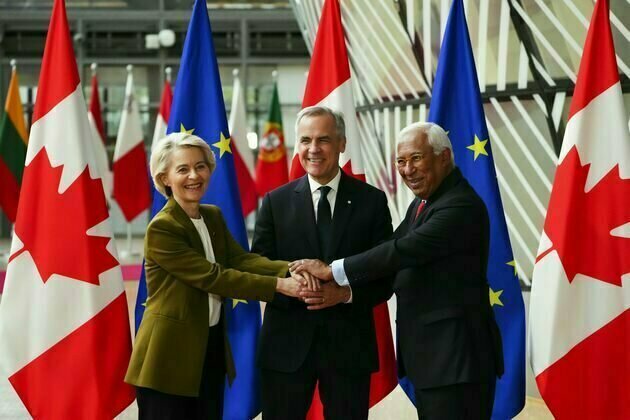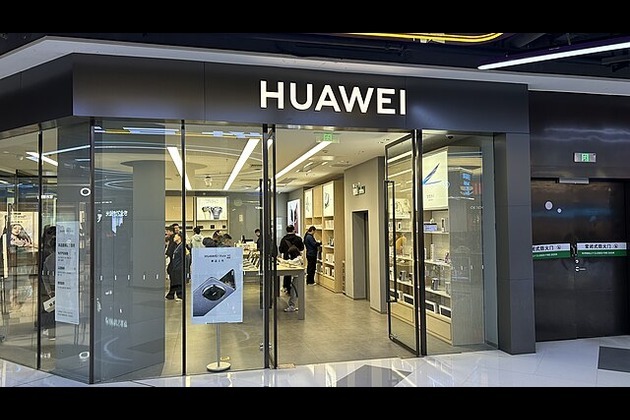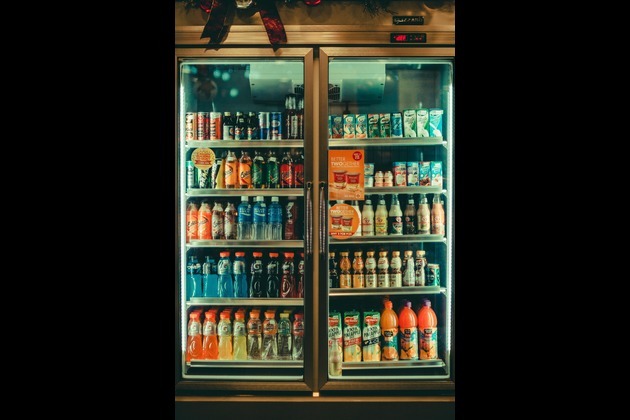How Eurostack could offer Canada a route to digital independence from the United States
The Conversation
14 Jul 2025, 13:16 GMT+10

The contemporary internet has been with us since roughly 1995. Its current underlying economic model - surveillance capitalism - began in the early 2000s, when Google and then Facebook realized how much our personal information and online behaviour revealed about us and claimed it for themselves to sell to advertisers.
Perhaps because of Canada's proximity to the United States, coupled with its positive shared history with the U.S. and their highly integrated economies, Canada went along for that consumerist ride.
The experience was different on the other side of the Atlantic. The Stasi in the former East Germany and the KGB under Josef Stalin maintained files on hundreds of thousands of citizens to identify and prosecute dissidents.
Having witnessed this invasion of privacy and its weaponization first-hand, Europe has been far ahead of North America in developing protections. These include the General Data Protection Regulation and the Law Enforcement Directive, with protection of personal data also listed in the European Union's Charter of Fundamental Rights.
Canada clearly took too much for granted in its relationship with the U.S. Suddenly, Canada is being threatened with tariffs and President Donald Trump's expressed desire to make Canada the 51st American state.
This has fuelled the motivation of Canada both internally and in co-operation with western European governments to seek greater independence in trade and military preparedness by diversifying its relationships.
Prime Minister Mark Carney has begun promoting "nation-building projects," but little attention has been paid to Canada's digital infrastructure.
Read more: How Canadian nationalism is evolving with the times - and will continue to do so
Three recent developments suggest Canada would be well-advised to start paying close attention:
1. The current U.S. administration has raised concerns about its reliability as a partner and friend to Canada. Most of the concerns raised in Canada have been economic. However, Curtis McCord, a former national security and technology researcher for the Canadian government, has said the current situation has created vulnerabilities for national security as well:
"With Washington becoming an increasingly unreliable ally, Mr. Carney is right to look for ways to diversify away from the U.S. But if Canada wants to maintain its sovereignty and be responsible for its national security, this desire to diversify must extend to the U.S. domination of Canada's digital infrastructure."
2. Silicon Valley is exhibiting a newfound loyalty to Trump. The photo of the "broligarchy" at Trump's inauguration spoke volumes, as their apparent eagerness to appease the president brings the data gathered by the internet's surveillance-based economy under state control.
3. Trump's recent executive order entitled "Stopping waste, fraud and abuse by eliminating information silos" is alarming. The order became operational when the Trump administration contracted with Palantir, a company known for its surveillance software and data analytics in military contexts. Its job? To combine databases from both the state and federal levels into one massive database that includes every American citizen, and potentially any user of the internet.
Combining multiple government databases is concerning. Combining them with all the personal data harvested by Silicon Valley and providing them to a government showing all the hallmarks of an authoritarian regime sounds like Big Brother has arrived.
Civil liberties groups such as the Electronic Freedom Foundation, academics and even former Palantir employees have raised alarms about the possibilities for abuse, including the launch of all the vendettas Trump and his supporters have pledged to undertake.
European governments have attempted to rein in Silicon Valley's excesses for years. Trump's re-election and his moves toward potentially weaponizing internet data have further boosted Europe's resolve to move away from the U.S.-led internet.
One newer effort is Eurostack. A joint initiative involving academics, policymakers, companies and governments, it envisions an independent digital ecosystem that better reflects European values - democratic, sovereign, inclusive, transparent, respectful of personal privacy and innovation-driven.
Spokesperson Francesca Bria explains the "stack" arises from the idea that a digitally sovereign internet needs to have European control from the ground up.
That includes the acquisition of raw materials and manufacture and operation of the physical components that comprise computers and servers; the cloud infrastructure that has the processing power and storage to be operational at scale; the operating systems and applications that comprise the user interface; the AI models and algorithms that drive services and its policy and governance framework.
Prospective gains to Europe are considerable. They include greater cybersecurity, promoting innovation, keeping high-end creative jobs in Europe, promoting collaboration on equitable terms and creating high-skilled employment opportunities.
Canada receives no mention in the Eurostack proposal to date, but the project is still very much in the developmental phase. Investment so far is in the tens of millions instead of the billions it will require.
Canada has a lot to offer and to gain from being part of the Eurostack initiative. With the project still taking shape, now is the perfect time to get on board.
 Share
Share
 Tweet
Tweet
 Share
Share
 Flip
Flip
 Email
Email
Watch latest videos
Subscribe and Follow
Get a daily dose of Toronto Telegraph news through our daily email, its complimentary and keeps you fully up to date with world and business news as well.
News RELEASES
Publish news of your business, community or sports group, personnel appointments, major event and more by submitting a news release to Toronto Telegraph.
More InformationBusiness
SectionBitcoin soars to a record on Trump policies, institutional demand
NEW YORK CITY, New York: Bitcoin surged to a new all-time high this week, buoyed by growing institutional interest and a wave of pro-crypto...
Huawei eyes new buyers for AI chips amid U.S. export curbs
SHENZHEN, China: As global chip competition intensifies, Huawei Technologies is exploring new markets in the Middle East and Southeast...
U.S. food prices at risk as Brazil tariff hits key imports
LONDON/NEW YORK CITY: American grocery bills may be headed higher as coffee and orange juice prices face upward pressure from new tariffs...
WK Kellogg sold to Ferrero as food giants chase shelf power
BATTLE CREEK, Michigan: In a major consolidation of iconic food brands, WK Kellogg has agreed to be acquired by the owner of Ferrero...
Filmmaker joins biotech effort to bring back extinct giant bird
WASHINGTON, D.C.: Filmmaker Peter Jackson's lifelong fascination with the extinct giant New Zealand flightless bird called the moa...
India seeks WTO nod for retaliatory tariffs on US
NEW DELHI, India: India has submitted a revised proposal to the World Trade Organization (WTO) in Geneva to implement retaliatory tariffs...
Canada
Section"Deeply disturbed": Naveen Patnaik on reports of eggs hurled at Ratha Jatra devotees in Toronto; urges Odisha Govt, MEA to act
Toronto [Canada], July 14 (ANI): Former Odisha Chief Minister Naveen Patnaik on Monday expressed deep concern over reports of eggs...
How Eurostack could offer Canada a route to digital independence from the United States
The contemporary internet has been with us since roughly 1995. Its current underlying economic model - surveillance capitalism - began...
2026 FIFA World Cup expansion will have a big climate footprint, with matches from Mexico to Canada - here's what fans can do
When the FIFA World Cup hits North America in June 2026, 48 teams and millions of sports fans will be traveling among venues spread...
MLB roundup: Red Sox top Rays to extend win streak to 10
(Photo credit: Brian Fluharty-Imagn Images) Ceddanne Rafaela hit a two-run home run to help the Boston Red Sox stretch their winning...
Cole Palmer leads Chelsea over PSG to win Club World Cup
(Photo credit: Mike Segar-Reuters via Imagn Images) EAST RUTHERFORD, N.J. -- Chelsea were clear underdogs before the FIFA Club World...
Athletics smack three HRs to take down Blue Jays
(Photo credit: Dennis Lee-Imagn Images) Austin Wynns, Tyler Soderstrom and Nick Kurtz each hit two-run homers to help the Athletics...












